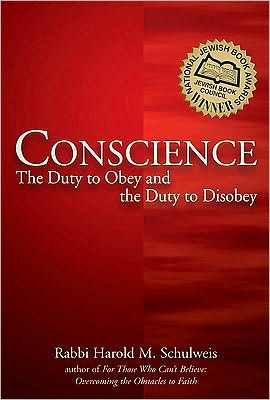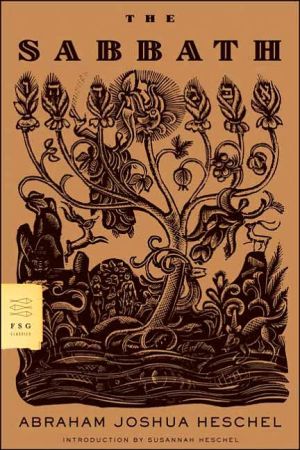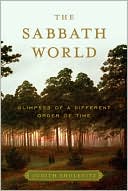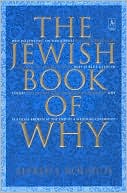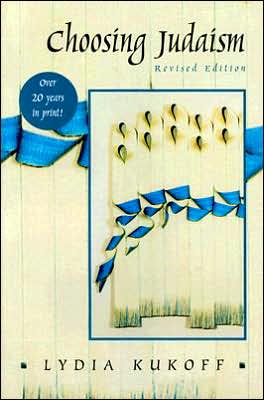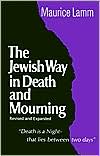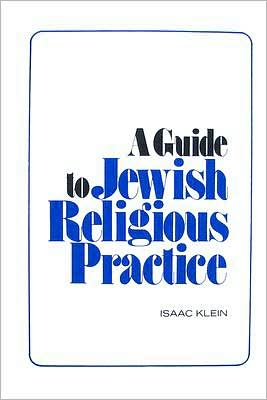Conscience: The Duty to Obey and the Duty to Disobey
This clarion call to rethink our moral and political behavior examines the idea of conscience and the role conscience plays in our relationships to government, law, ethics, religion, human nature and God-and to each other. From Abraham to Abu Ghraib, from the dissenting prophets to Darfur, Rabbi Harold Schulweis probes history, the Bible and the works of contemporary thinkers for ideas about both critical disobedience and uncritical obedience. He illuminates the potential for evil and the...
Search in google:
This clarion call to rethink our moral and political behavior examines the idea of conscience and the role conscience plays in our relationships to government, law, ethics, religion, human nature and God-and to each other. From Abraham to Abu Ghraib, from the dissenting prophets to Darfur, Rabbi Harold Schulweis probes history, the Bible and the works of contemporary thinkers for ideas about both critical disobedience and uncritical obedience. He illuminates the potential for evil and the potential for good that rests within us as individuals and as a society.By questioning religion's capacity-and will-to break from mindless conformity, Rabbi Schulweis challenges us to counter our current suppressive culture of obedience with the culture of moral compassion, and to fulfill religion's obligation to make room for and carry out courageous moral dissent. Publishers Weekly In this articulate and cogent treatise, Schulweis, longtime congregational rabbi and founding chairman of the Jewish Foundation for the Righteous, argues that acts of disobedience can be appropriate and moral when law violates conscience. Referencing the Midrash, Bible and Talmud, he argues that both the popular understanding of God as a being who cannot be contradicted and of Judaism as a religion that requires uncompromising obedience to authority is mistaken. Throughout Jewish history, he explains, rabbis have created ingenious legal maneuvers to eliminate laws they found unconscionable, such as making capital punishment so difficult to implement that it became obsolete. Furthermore, God's engagement with humanity, most famously his interaction with Abraham before he destroys Sodom, indicates a willingness for confrontations promoting morality and righteousness. Schulweis's broad knowledge is evident as he intersperses biblical anecdotes with philosophical theories, as is his ability to make his thesis relevant by including material on the Holocaust and references to Abu Ghraib. Whether religious or not, readers concerned with the culture of mindless complicity will find this volume revealing and enlightening. (Nov.)Copyright © Reed Business Information, a division of Reed Elsevier Inc. All rights reserved.
\ CONSCIENCE\ \ The Duty to Obey and the Duty to Disobey \ \ \ \ By Harold M. Schulweis \ JEWISH LIGHTS Publishing \ Copyright © 2008 \ \ Harold M. Schulweis\ All right reserved.\ \ \ ISBN: 978-1-58023-375-0 \ \ \ \ \ Chapter One Conscience Confronts God \ I would rather be called a fool all my life than be called a godless man Jot one moment. -Akabya ben Mahalalel, FIRST-CENTURY RABBINIC SCHOLAR\ Some questions cut to the very core of faith. What is the appropriate response to divine laws that run against the grain of conscience? If biblical or rabbinic laws violate our personal moral sensibilities, are we left only with the alternative either to obey the revealed law or to shunt aside our mettlesome conscience? Must an avowedly immoral law, if claimed to be divinely given, be dutifully observed?\ We have learned how to accommodate biblical cosmology and anthropology to Newton and Darwin, but the contradictions between law and conscience prove more troubling. The clash of divine law and morality confronts the believers' basic spiritual and moral rationale, the role ascribed to God as Sovereign Commander, and the degree of responsibility assigned to humanity. Is the human agent the servant or colleague of the divine authority? In this chapter, we will discuss the biblical precedent lot humanity's interactions with God and our conflicts between divine law and human conscience.\ Abraham and Moral Audacity\ My earliest and lasting impression of the conflict between the word of God and the conscience of man began with Abraham's confrontation with God as depicted in the Bible.\ The encounter between the father of the Jewish people and the God who has chosen him forecasts the role of moral conscience at the heart of the divine-human dialogue. That God would intend to visit judgment on the entire population of Sodom and Gomorrah is for Abraham grievously unfair:\ Abraham came forward and said, "Will You sweep away the innocent among the guilty? What if there should be fifty within the city; will You then wipe out the place, and not forgive it for the sake of the innocent fifty who are in it? Far be it from You to do such a thing, to bring death upon the innocent as well as the guilty, so that innocent and guilty fare alike. Far be it from You! Shall not the Judge of all the earth deal justly?" And the Lord answered, "If I find within the city of Sodom fifty innocent ones, I will forgive the whole place for their sake." (Gen. 18:23)\ The overture to Abraham's robust altercation with God is introduced by God's self-revelation:\ Shall I hide from Abraham what I am about to do, since Abraham is to become a great and populous nation and all the nations of the earth are to bless themselves by him? For I have singled him out, that he may instruct his children and his posterity to keep the way of the Lord by doing what is just and right, in order that the Lord may bring about for Abraham what He has promised him. (Gen. 18:17)\ God, who reveals his design to destroy the cities of sin, feels it necessary to explain this motivation so that Abraham may know how and why God functions in history. God's "justice and righteousness" are the crucial moral predicates that inform the character of moral conscience in this story.\ Once God reveals these moral traits, God is open to human moral critique. Without understanding God's justice and righteousness, Abraham would have no alternative but to listen, heed, and quietly obey his Master's voice. With the self-revealing attributes of God, however, Abraham is empowered to measure God's design with the rod of God's own morality. God is not enmeshed in a veil of inscrutability, but is open to reciprocal exchange. The powerful bilateral dialogue that ensues is the matrix of multiple negotiations and altercations between a people and their God.\ In the Abraham encounter, God is far from an implacable authoritarian commander designing plans that dare not be questioned. Abraham enters the throes of history as a divinely blessed moral hero. The event at Sodom introduces a paradigmatic model of behavior for a patriarch, prophet, and sage whose moral dissent against authority-human and divine-will not be dismissed as acts of treason against God. To the contrary, as we will see repeatedly in other divine-human conflicts, God not only accepts human moral criticism, but also is augmented by it. The theological implications and moral consequences of such a reciprocal dialogue affect Jewish belief, practice, and temperament.\ We are conventionally raised to believe that Jewish faith demands unwavering obedience to the law and the law-giver. That attitude tends to cultivate a temperament of compliance and passivity. For conventional thinking, "talking back to God" smacks of heresy. But a significant genre of religious, moral, and spiritual audacity toward the divine authority-chutzpah klapei shmaya-finds a place of honor in Jewish religious thought.\ By "spiritual audacity" I do not mean what is commonly referred to as chutzpah. Spiritual audacity against God is not belief mocked. Chutzpah is usually associated with contrariness, the kind of nerve told of the young man who, having murdered his parents, pleads for clemency on the grounds that he is an orphan. Spiritual audacity, by contrast, confronts authority with awe and respect. It appeals to an authority within authority, to conscience shared by divine believers and the Supreme Commander, and to the godliness within God.\ Moses Nullifies God's Law\ God's "justice and righteousness" are no more hidden from Moses than they were concealed from Abraham. One striking rabbinic legend imagines Moses's displeasure with an important segment in the second commandment. For Moses, that God should visit "the iniquity of the fathers upon the children to the third and fourth generation" (Exod. 20:5) is an unacceptable form of group punishment akin to the morally indiscriminate punishment of Sodom. Challenging God's pronouncement of the punishment of the sons for the sins of the fathers, Moses argues with God, against God, and in the name of God. Moses engages God with fierce moral logic:\ Sovereign of the Universe, consider the righteousness of Abraham and the idol worship of his father Terach. Does it make moral sense to punish the child for the transgressions of the father? Sovereign of the Universe, consider the righteous deeds of King Hezekiah, who sprang from the loins of his evil father King Achaz. Does Hezekiah deserve Achaz's punishment? Consider the nobility of King Josiah, whose father Amnon was wicked. Should Josiah inherit the punishment of Amnon? (Num. Rabbah, Hukkat XIX, 33)\ Trained to view God as an unyielding authoritarian proclaiming immutable commands, we might expect that Moses will be severely chastised for his defiance. Who is this finite, errant, fallible, human creature to question the explicit command of the author of the Ten Commandments? The divine response to Moses, according to the rabbinic moral imagination, is arresting:\ By your life Moses, you have instructed Me. Therefore I will nullify My words and confirm yours. Thus it is said, "The fathers shall not be put to death for the children, neither shall the children be put to death for the fathers." (Dent. 24:16)\ Far from being chastised by God, Moses is rewarded by having his own human critique recorded later in the sacred text in Moses's own name. "As it is written in the book of the Law of Moses, as the Lord commanded, swing 'The father shall not be put to death'" (Num. Rabbah 19:33). The God of the sages does not merely ordain; God also listens. Even after God passes judgment, God allows humans who have been endowed with the moral competence and courage to challenge the Sovereign Deity-to instruct.\ God's openness to human critique is reiterated throughout the rabbinic stories of disputations between God and Jewish religious heroes. For example, in protest against God's threatening imprecations toward those who worshipped the golden calf, Moses argues against God's punitive intent: "Sovereign of the Universe, how can Israel realize what they have done, seeing that they have been raised in Egypt?" Moses reminds God that the Ten Commandments were not given to the Children of Israel, but to Moses himself, and that therefore the Children of Israel should not stand in violation of the law. It is Moses alone who may be judged culpable. Hearing the argument, God concedes, "By your life, Moses, you have spoken well" (Exod. Rabbah, Ki Tissa 47:9).\ In yet another biblical episode, elaborated by the rabbinic commentary, Moses defies God's command to make war with Sihon, a people who have not interfered with Israel (Deut. 2:34). Moses is explicitly commanded by the Supreme Commander to make war, but he disobeys the divine order and instead sends messengers to proclaim peace to Sihon. God's enthusiastic approving response to Moses's violation of the command declares, "By your life Moses, I shall cancel my own words and proclaim yours." The lesson: people of faith may intercede and divine imperatives are subject to correction.\ Rabbinic midrashim of dissent are numerous and religiously significant. These midrashim, or rabbinic parables, are elaborate metaphors and legends that fill the moral lacunae of biblical narratives, unburdening the believer from a submissive reading of scriptures and a subservient stance toward the Sovereign Commander. In midrash, God hears moral arguments and cancels decrees. In this way, the biblical text is not the last but the first word of God. The Bible is not a closed book, but open to the multiple interpretation of its sages. Embedded in the sharp divine-human exchange is the presence and power of conscience to refine the law.\ Moses Cites Scripture to God\ God is not alone. God needs the human being. The human being is God's closest and indispensable ally. The divine and the human are morally co-related. God intervenes on behalf of humanity, and humanity intervenes on behalf of God. In a compelling midrash based on a biblical narrative, God is furious at the people of Israel for worshipping the golden calf at the toot of Mount Sinai. Angered, God exclaims, "Now let Me alone, that My wrath may wax hot against them" (Exod. 32:9). In the interpretation of the Talmud (Berachoth 32a) and midrash (Exod. Rabbah 43:3-4) Moses hears God's odd expression "Let Me alone" as a cue for Moses's active intervention. Who is there to restrain God but the human listener? Moses's action toward God is analogous to a man seizing the garment of his fellow and declaring, "I will not let you go until you forgive and pardon me." In the same way, Moses prayed before the Holy One to save his people, "until a fire seized him" (Exod. Rabbah, Ki Tissa 42:9, and B. Berachoth 32a). The confrontation is reminiscent of Abraham's critique of God's intention at Sodom and Gomorrah. Here Moses pleads that it would be a profanity for God to attack Israel.\ The ideal prophet, sages declare, "defends Israel before God and God before Israel" (Mekilta de Rabbi Ishmael, Pischa 1). The ideal prophet is Jeremiah, who defends the "son" (Israel) before the "father" (God), and defends the "father" before the "son." For Moses, conscience is the intermediary between God and Israel. Throughout his career, Moses places himself in the middle, defending both the dignity of God and the dignity of God's people. Moses is no sycophantic follower. Moses admonished God because of Israel and reproached Israel because of God. To Israel, Moses said, "Yon have sinned a great sin," and to God he said, "Lord, why does Your wrath wax hot against Your people?"\ Throughout much of the rabbinic midrashic tradition, we meet the dignity of the believer who stands toe-to-toe with God. In one midrashic exchange, Moses addresses God as a virtual equal. God and Moses have been at each other, God arguing that Israel has betrayed the law, and Moses pleading with God in defense of Israel's innocence. The scale of justice lies evenly balanced. Moses approaches God, declaring, "You God say You will smite them, and I say pardon them." He concludes, "The matter is evenly balanced; we will see who will prevail: You, Lord, or I." Rabbi Berekya adds that God then said to Moses: "By your life, Moses, you have nullified My will and yours prevails" (Num. Rabbah 16:25 and Deut. Rabbah 5:13).\ Throughout these rabbinic stories, we face a unique Jewish religions anthropology. The human being is no robotic instrument of God's play, but rather a person endowed with a dignity that encourages him or her to oppose the master, to defend the accused, and often to prevail. The human challenge receives due honor from the allegedly vanquished Deity. Such legends, canonized in the midrashic literature, break the image of the believer as a slave to the master, or the critic dismissed as a rebel without a true cause.\ Moses Frees God\ In a stunning midrashic reading of a biblical text, Moses astoundingly frees God from God's own vow (Exod. Rabbah 43:4). In the episode of the golden calf, God struggles with a self-made dilemma. On the one hand, God has taken an oath to destroy the Children of Israel because of their worship of the golden calf; on the other hand, God is persuaded by Moses to override that oath. But how can God violate the oath inasmuch as God is bound by the dictates of God's own words? God declares, "I cannot retract an oath which has proceeded from My mouth." Moses then appeals to God's own laws: "Did You, God, not give me the power of annulment of oaths by saying, 'When a man vows a vow to the Lord, or swears an oath to bind his soul, he himself cannot break his word' (Num. 30:3), yet a scholar may absolve his vows if he consults him?" "Come to me." Then Moses says, "It is only right that You should annul Your own oath. You should be the first to follow Your annulment through me." God accedes to Moses's argument. Moses wraps himself in his cloak in the manner of a sage while God stands before him asking for the annnhnent of the divine vow. Moses asks God, "Do you regret now Your vow?" and God replies, "I regret now the evil which I said I would do to my people." Hearing God's response, Moses rules: "Be it absolved for You. There is neither vow nor oath any longer" (Exod. Rabhah 43:4). God has been liberated by Moses's use of God's law.\ Throughout such rabbinic homilies, the elevation of the religious hero is indicative of a reciprocal divine-human relationship radically different from that of master and slave. God's dependence on humans is no denigration of God's authority but rather an elevation of God's recognition of human collegiality.\ God and humankind are interdependent. The Bible informs us that when the Children of Israel sinned against God, God was offended and left the tent of Israel in anger. In sympathy with God, Moses, too, left the tent of Israel in anger. According to a rabbinic reading, Moses is rebuked by God. The Lord spoke to Moses face-to-face: "Have I not made a condition with you that when you are angry I appease you, and when I am angry, you will appease Me? Turn back, Moses, and return to the camp" (Exod. Rabbah 45:2). Here, the complementary role of God and the religious disciple is poignantly expressed. God declares, "Shall two angry faces put hot water into the drink? Have I not told you that when I am in anger, you are to placate Me, and when you are in anger, I will placate yon?" (Exod. Rabbah 45:2).\ A related midrash demonstrates the loving interdependence of God and the religious hero. When Moses is about to die, God asks:\ Who now will stand against Me on the day of wrath? Who shall protect Israel in the house of My anger? Who will stand up for My children ill the great end of days, and who will speak up for them when they sin? (Midrash Tanhuma, Buber, ed.)\ Prophetic moral conscience does not exempt the claims of the prophet, not even the prophet of prophets, Moses himself. The prophet whose prophesies are spoken in God's name is not invulnerable to moral critique. Moreover, the prophet's foretelling and predications may be overturned.\ The intertwined relationship between the divine and the human is proudly announced by the psalmist: "He, God, would have destroyed them had not Moses, His chosen one, confronted Him in the breach to avert His wrath" (Ps. 106:23).\ (Continues...)\ \ \ \ \ \ Excerpted from CONSCIENCE by Harold M. Schulweis Copyright © 2008 by Harold M. Schulweis. Excerpted by permission.\ All rights reserved. No part of this excerpt may be reproduced or reprinted without permission in writing from the publisher.\ Excerpts are provided by Dial-A-Book Inc. solely for the personal use of visitors to this web site.\ \
Introduction 11 Conscience Confronts God 72 Human Conscience and Divine Legislation 233 Conscience and Covenant: Vertical and Horizontal 454 Against Conscience 595 Witness to Goodness 716 The Conscience of an Anti-Semite 917 Cultivating Conscience 1018 The Bridge across the Rivers of "Either-Or" 109Notes 127
\ Publishers WeeklyIn this articulate and cogent treatise, Schulweis, longtime congregational rabbi and founding chairman of the Jewish Foundation for the Righteous, argues that acts of disobedience can be appropriate and moral when law violates conscience. Referencing the Midrash, Bible and Talmud, he argues that both the popular understanding of God as a being who cannot be contradicted and of Judaism as a religion that requires uncompromising obedience to authority is mistaken. Throughout Jewish history, he explains, rabbis have created ingenious legal maneuvers to eliminate laws they found unconscionable, such as making capital punishment so difficult to implement that it became obsolete. Furthermore, God's engagement with humanity, most famously his interaction with Abraham before he destroys Sodom, indicates a willingness for confrontations promoting morality and righteousness. Schulweis's broad knowledge is evident as he intersperses biblical anecdotes with philosophical theories, as is his ability to make his thesis relevant by including material on the Holocaust and references to Abu Ghraib. Whether religious or not, readers concerned with the culture of mindless complicity will find this volume revealing and enlightening. (Nov.)\ Copyright © Reed Business Information, a division of Reed Elsevier Inc. All rights reserved.\ \
